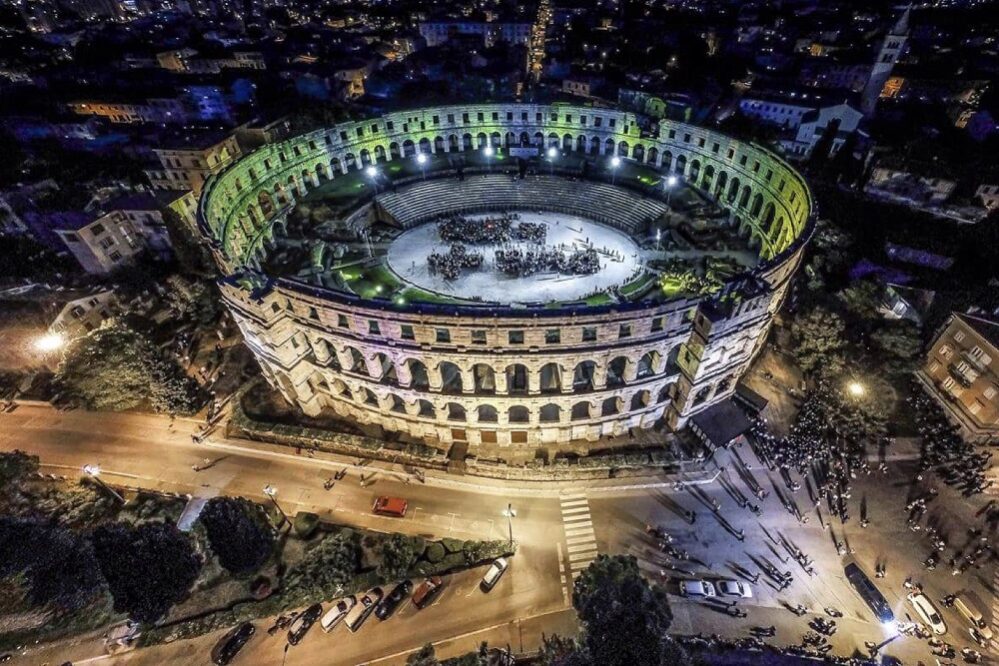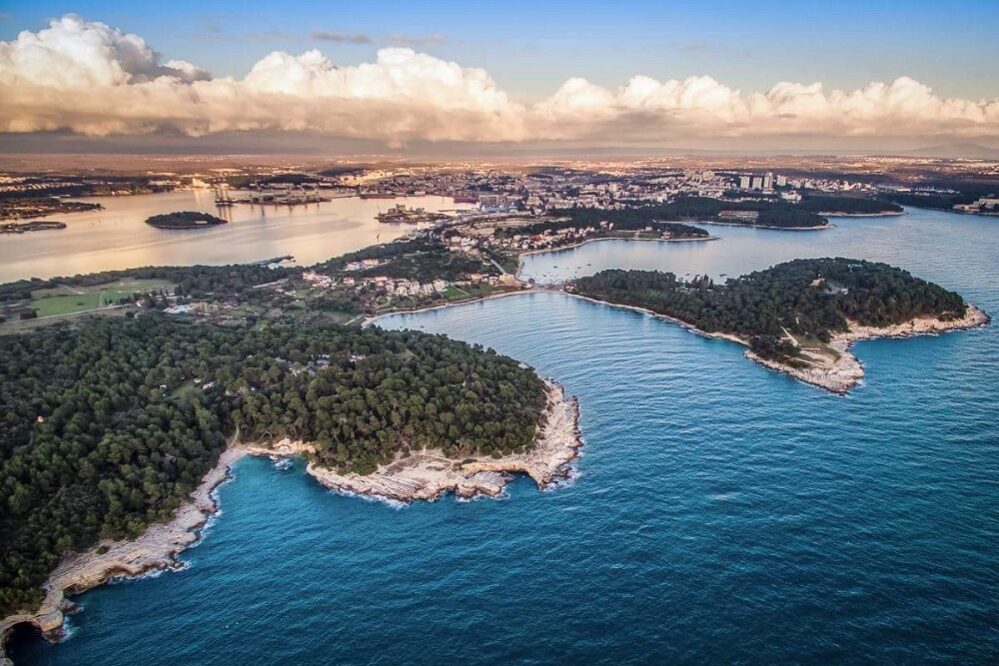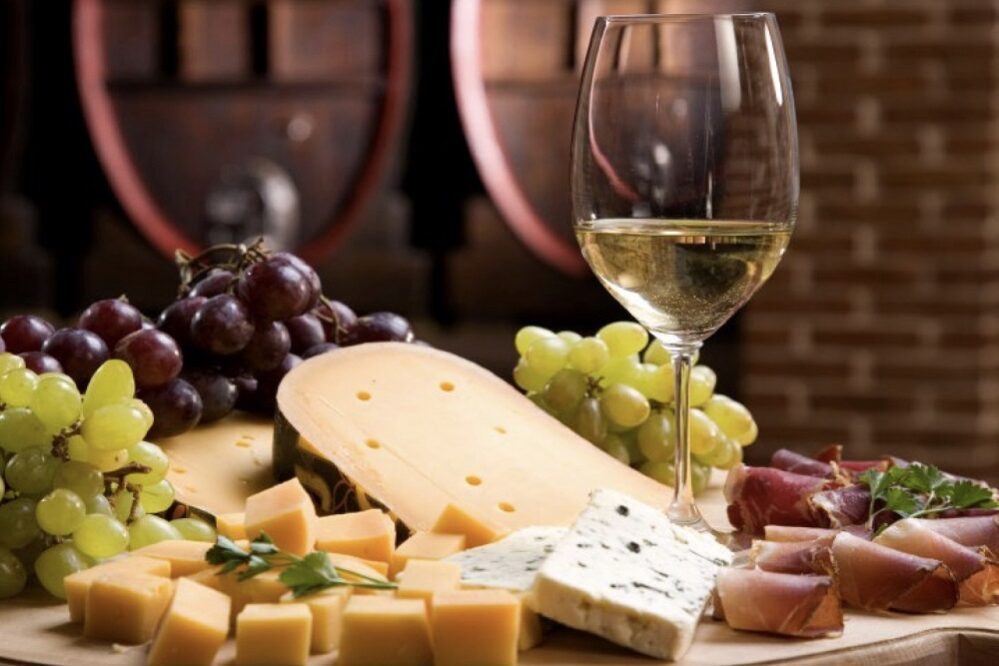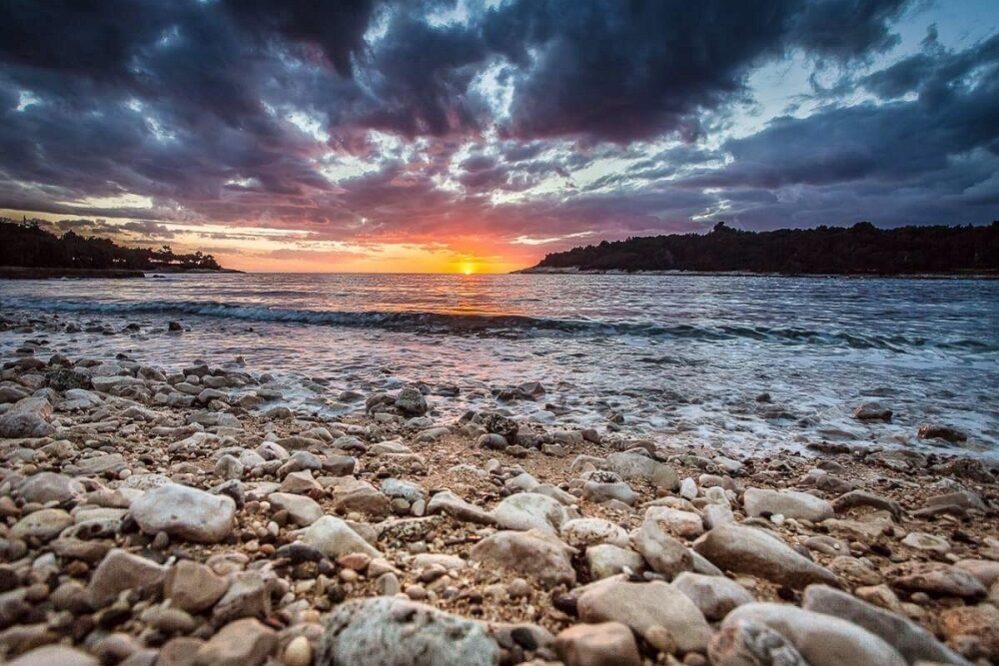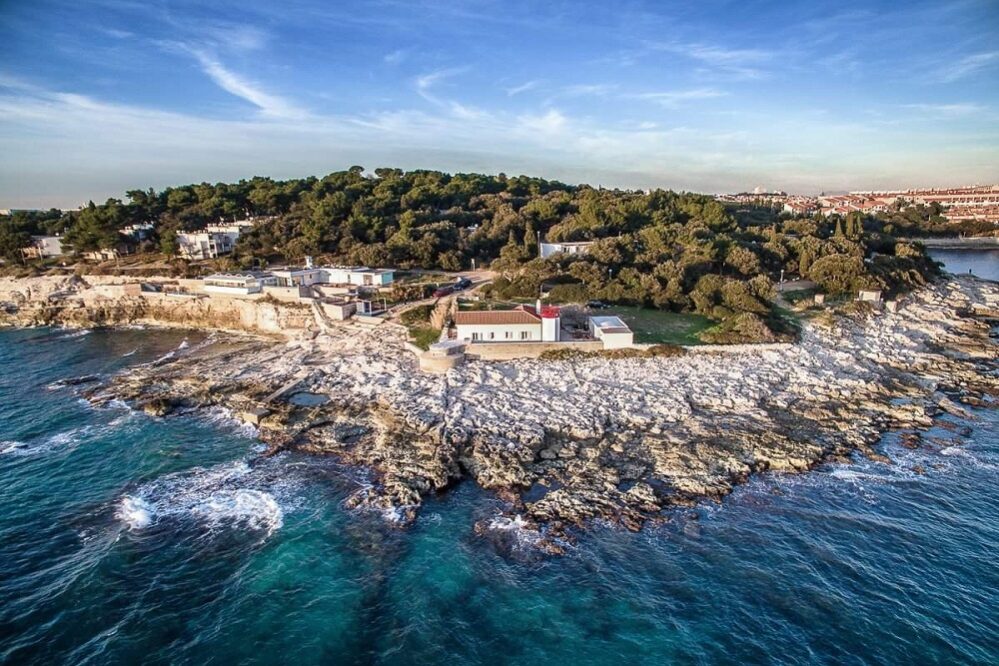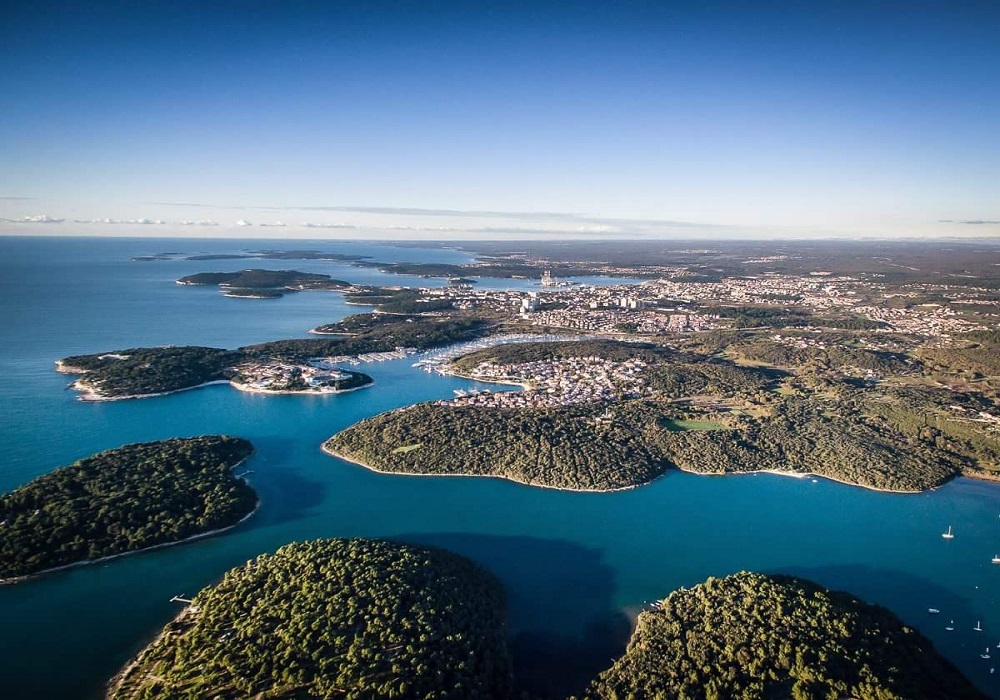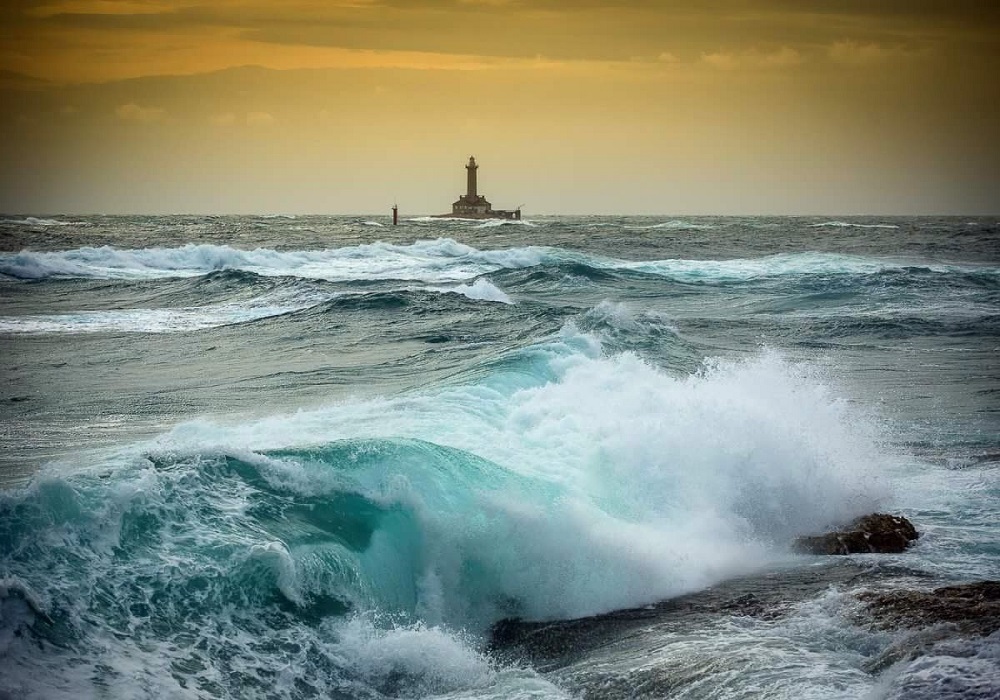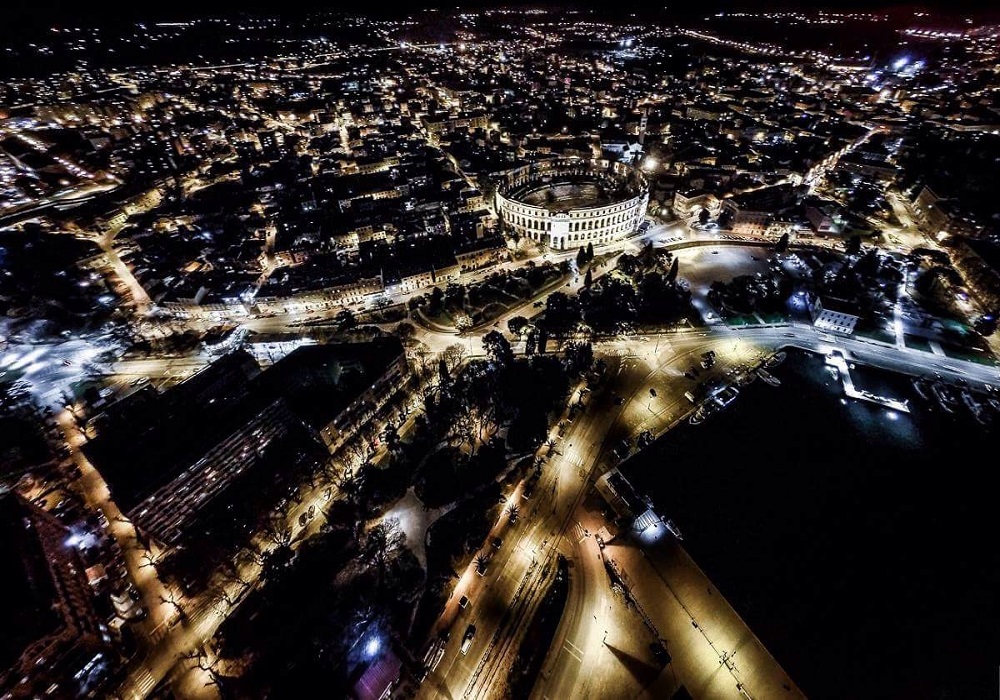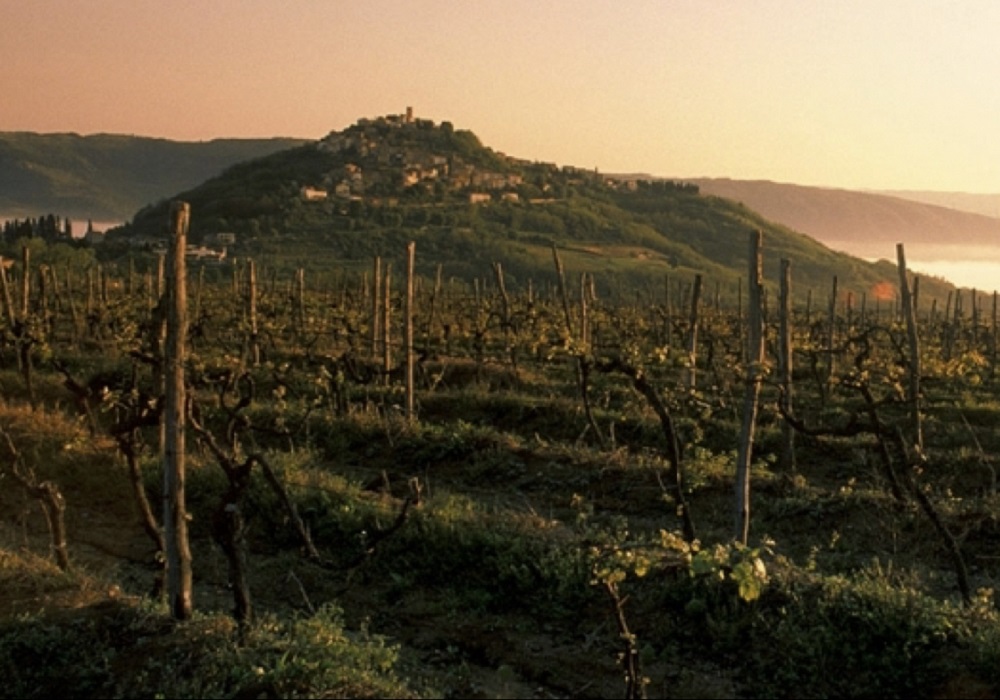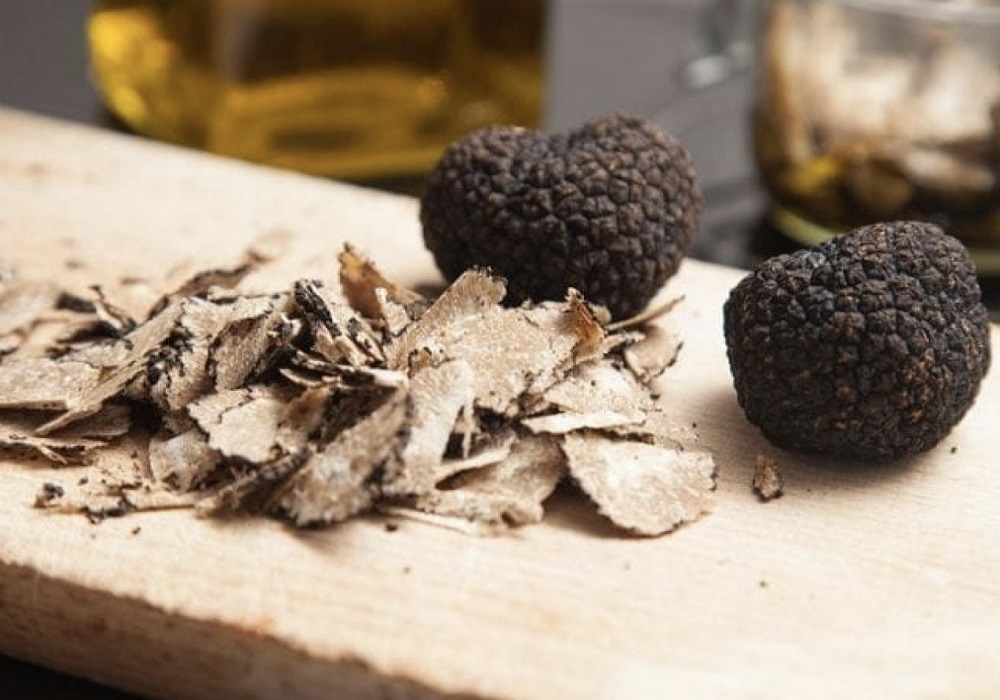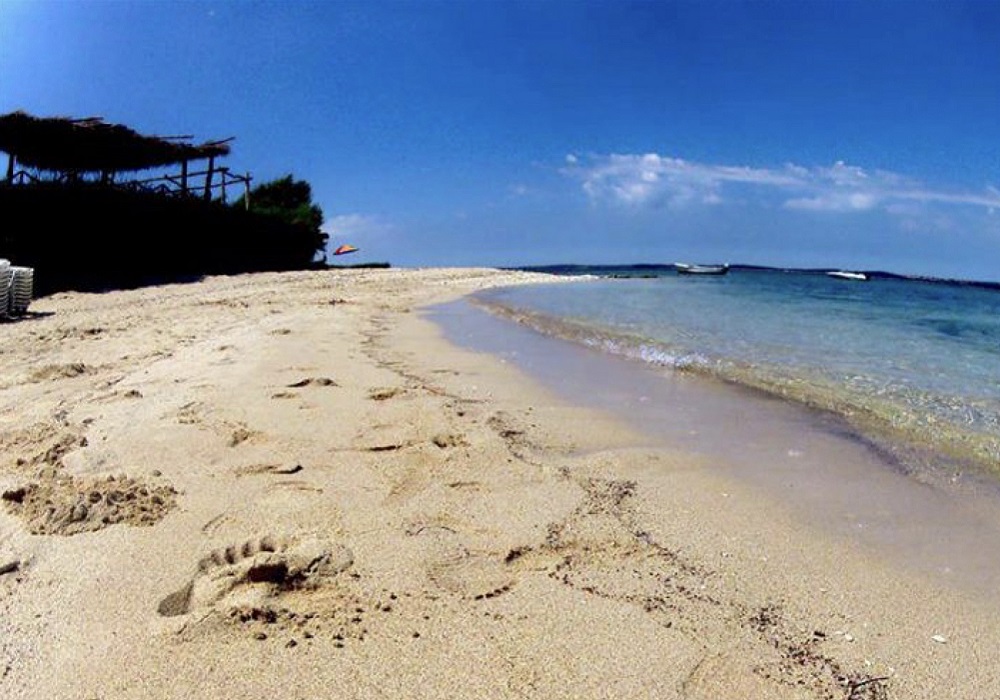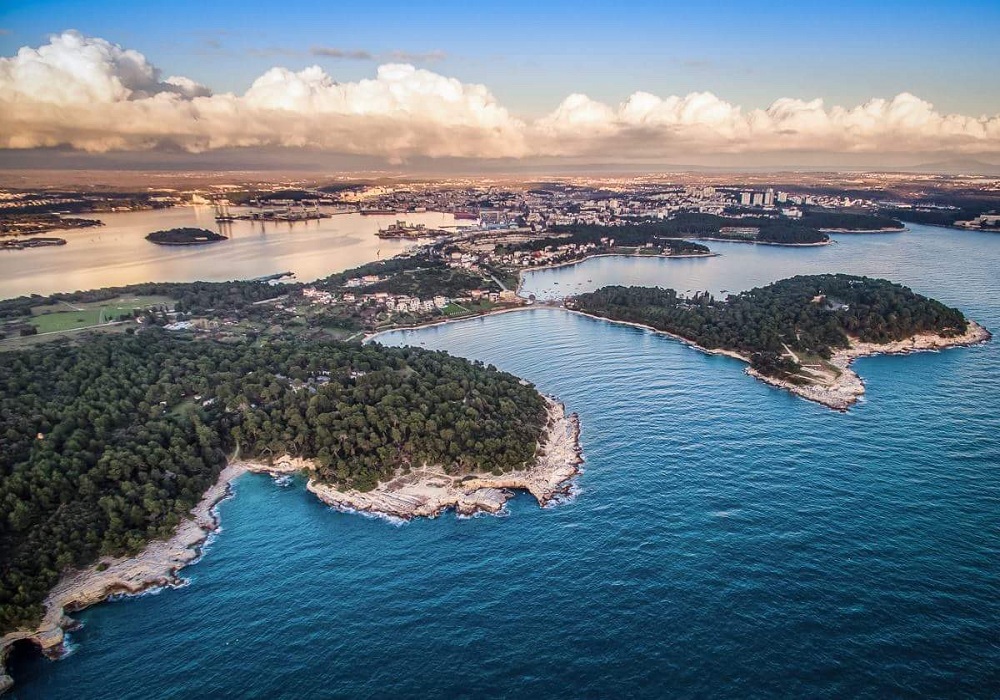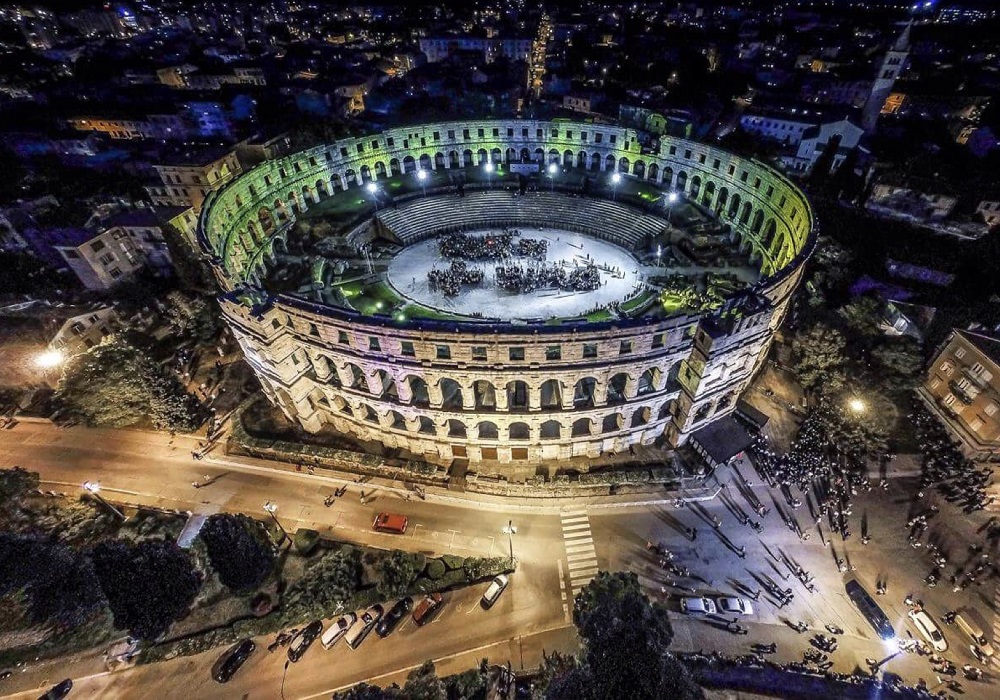Pula ( Italian, Pola ) is a city in Croatia, situated in the South of the Istrian peninsula. The name comes from the old Roman name provincia iulia pola polentia herculanea. The city is known, as are the other cities of the region, for its mild climate, beautiful sea and wild nature. It has a long tradition of wine production, fishing, ship building and tourism.
Walking around Pula you will notice many monuments of Roman architecture:the “Golden Gate” or the Arch of the Sergi family from the first century B.C., Gate of Hercules and Twin Gates, the Temple of Augustus and a small Roman theatre in the centre of the town. A special treat will be relaxing in the main square, Forum, which conserves its function of a place of gathering since the times of the emperor Augustus.
The natural beauty Pula’s surroundings and the turquoise Adriatic sea have made the city an interantional tourist destination. Of extraordinary beauty is the nearby National Park Brijuni.

